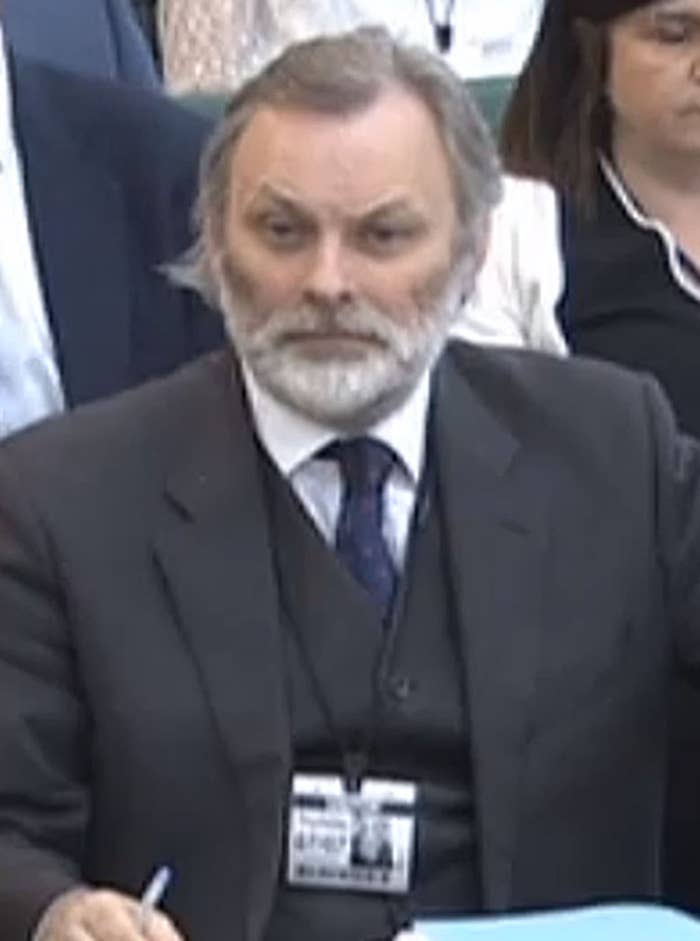
Theresa May needs to urgently reorganise her negotiating team and spend more time listening to EU experts if she wants to get a good Brexit deal for the UK, a former British ambassador to the EU has said.
Sir Nigel Sheinwald said the resignation of his successor, Sir Ivan Rogers, was a "real loss" for Britain's ability to strike a good Brexit deal, and insisted the prime minister needs to set out a clear negotiating position quickly and stop a small team of Downing Street advisers from running all negotiations.
"It is increasingly urgent that the government should sort out how the negotiating team needs to be structured," Sheinwald told BuzzFeed News.
Rogers shocked Downing Street by stepping down from his high-profile job earlier this week with a resignation letter criticising the government and urging his team to stand up to "ill-founded arguments and muddled thinking". There have also been reports of a turf war for control of EU negotiations between the London-based Brexit department and the British delegation in Brussels. Rogers has since been replaced by former envoy to Moscow Sir Tim Barrow.

"You’ve got a new ambassador to the EU and there appear to be some tensions between our Brussels office and the department leading the Brexit effort in Whitehall led by David Davis," Sheinwald said. "That clearly is a very, very important axis of what should be cooperation."
Sheinwald spent three years as the UK's ambassador to Brussels under Tony Blair between 2000 and 2003 before becoming Britain's ambassador in Washington DC, giving him an inside track on how international negotiations work – and the potential pitfalls.
He said all the other 27 EU countries would be working against Britain during the negotiations, presenting an enormous challenge for the prime minister: "I think ministers have to understand the complexity and the unprecedented nature of this negotiation. Unlike the negotiations Theresa May will have had as home secretary, this is a 27-to-1 negotiation with a huge amount of national interest at stake for all the nations concerned with elections in a number of major European countries this year."
May has pledged to invoke Article 50 by the end of this March, beginning the two-year formal process of the UK leaving the EU, which will involve substantial negotiations over trade, immigration, and access to the single market.
Sheinwald said the government should urgently ensure the British Brexit negotiating team is united, with officials allowed to deliver bad news to ministers even if it doesn't fit with what they want to hear: "Ultimately ministers will decide but those with professional expertise and experience need to be part of the policymaking process. That doesn’t appear to have been handled well over the last six months and needs to improve."
He said it seems "unlikely" Britain will be allowed to remain in the single market after leaving the EU, and added that May's government urgently needed to set out a clear vision of Brexit because otherwise even Britain's own negotiators may not understand what they are attempting to achieve.
"It has taken a very long time for ministerial thinking to gel, and they’ve been very defensive about setting out even the broad lines of their negotiating position. It’s a good thing that the prime minister is now preparing a major speech setting out the key negotiating objectives as it was very worrying that Ivan Rogers said even he didn’t know what the government's negotiating objectives would be.
"That situation has to be handled better in the months ahead. It’s obviously the case that a very small team in Number 10 of political advisers and the small EU unit can’t run this negotiation."
Instead, he said it was inevitable that the British negotiating position would appear in the media via other member states: "Brussels is a leaky, or [an] 'admirably open and transparent' environment. This won’t be a secret negotiation, it can’t be – the broad lines have to be pretty clear and the government will have to be pretty clear and report back to parliament on a regular basis."
Sheinwald wished Barrow well in the job but said it would be a challenge to get up to speed in time for the Brexit discussions: "I’m sure very rapidly he will develop personal relationships with his opposite numbers in the other member states, but he’ll have to do that more quickly than would have been the case if he’d been there with a good run-up to the negotiations."
